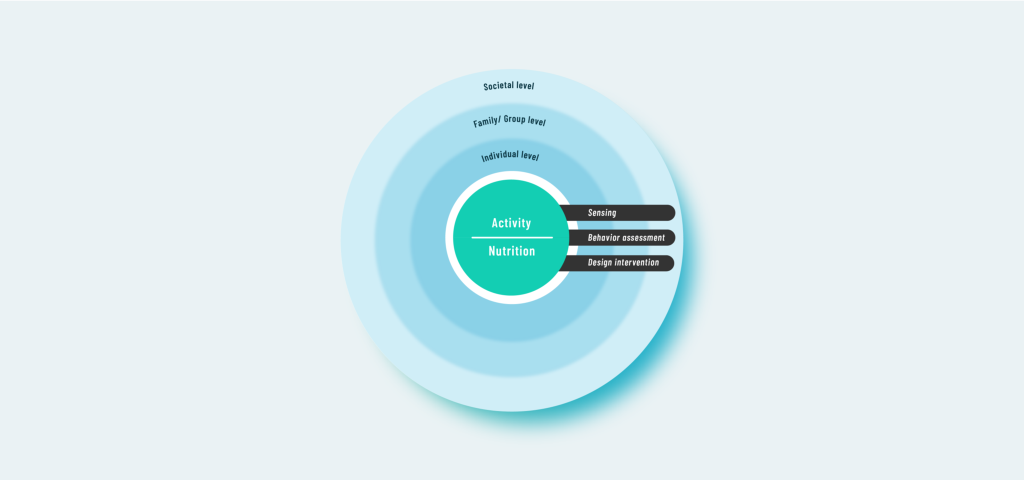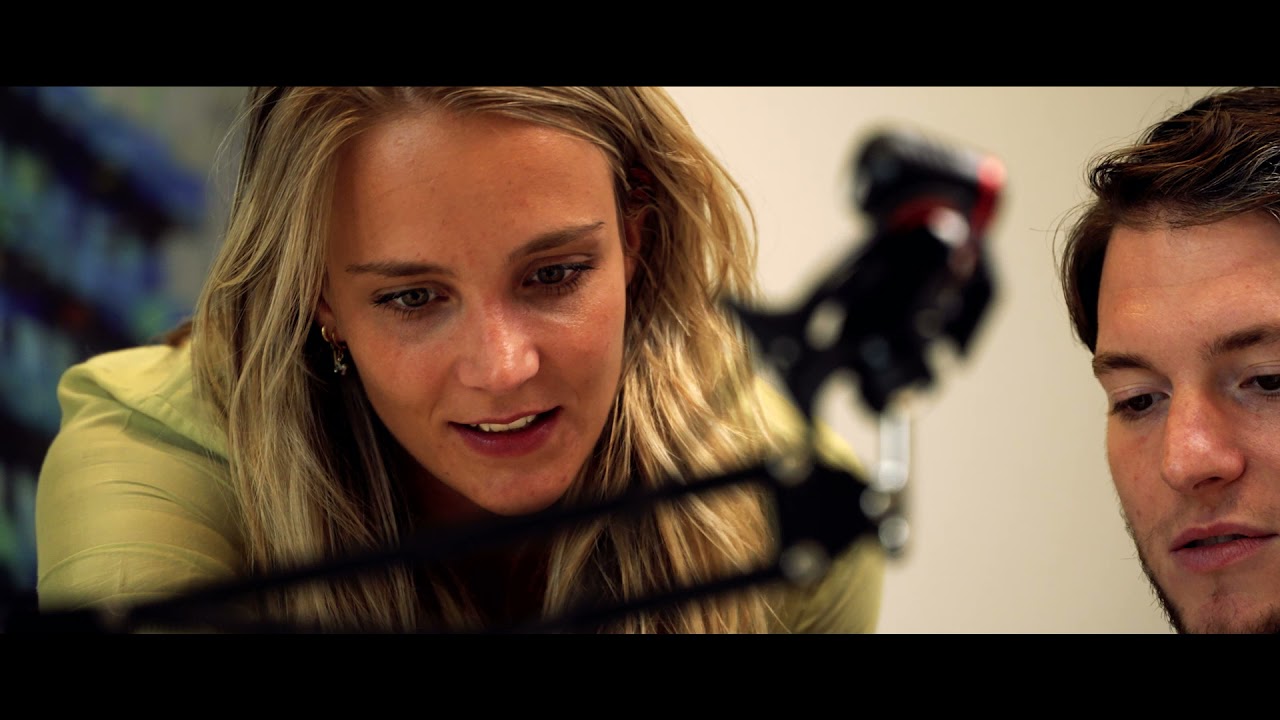Pride and Prejudice
Chronic disease prevention through real-life monitoring and intervention design
Physical activity and diet are two key factors for a healthy lifestyle. Both are not only difficult to modify for people on the long-term difficult, they are also difficult to measure. The novelty of this program lies in combining the monitoring in real-life through sensors (food intake, physical activity and health parameters) with development of design interventions at different levels of the system (person, group, society), and evaluation of the (long-term) effectiveness of these combined interventions.

A healthy lifestyle is key to people’s health and vitality. Physical activity and diet are two key lifestyle factors for sustainable health, which are also strongly linked with each other. Increasing energy expenditure through activity and reducing energy intake by revising the diet will enhance weight loss. Inactivity and poor dietary behaviour are both affected by an interaction of personal (e.g., attitudes), social (eating and being physically active are often social activities), cultural and societal (e.g., (un)healthy food availability, built environment) conditions. In modern affluent societies where food is abundant and available 24/7, and where people are constantly seduced by companies’ marketing efforts, it is extremely challenging to stick to a healthy diet combined with regular physical activity, and many people are unable to change their habits. The most successful endeavours to change people’s behaviour have combined interventions in multiple environments (at home, at school, at sports club) and have focused on groups rather than on individuals.
Physical activity and diet are also difficult to measure. Most studies have relied on self-report, from which it is notoriously difficult to gain reliable and valid measures. Memory bias, social approval, and social desirability bias occur frequently in reporting of various aspects of dietary intake (what was eaten, how much) and in physical activity (what was done, for how long and at what intensity). Hence, objective measurements are urgently needed to gain more insight in actual behaviour. In addition, we need longitudinal measurement, because health effects typically occur on the long-term.
This program aims to generate new scientific knowledge and innovative technology, including new frameworks for behaviour change, systems to monitor remotely health parameters and behaviour, and design approaches to develop interventions that persuade people to make healthy choices about what they eat and to what extent they are physically active, in order to adopt a healthier lifestyle. The novelty of this program lies in combining the monitoring in real-life through sensors (food intake, physical activity and health parameters) with development of design interventions at different levels of the system (person, group, society), and evaluation of the (long-term) effectiveness of these combined interventions. The development of the interventions will address both the socio-cultural context (e.g., household type, (sub)culture) and the physical context in which products are acquired and consumed and where physical activity can take place (e.g., stores, kitchens, restaurants, parks, city squares).
This program features a unique combination of disciplines, involving physical, life, ICT, design, behavioural and social sciences. The proposed consortium is composed of researchers from all 4TUs (Delft University of Technology, Eindhoven University of Technology, University of Twente, Wageningen University) and within each university from multiple faculties/departments. It thus combines in-depth nutrition and nutrition behaviour knowledge with the technological knowledge of lifestyle sensors, the design of lifestyle interventions for groups of people, the ability to seamlessly integrate sensing technologies into people’s daily lives, and the expertise on tailoring feedback to individuals on their nutrition and physical activity data, well aware of what can persuade them to make healthy choices in real life.
The video below will give you insight in some of the achievements of the project. You can also check out our magazine.




